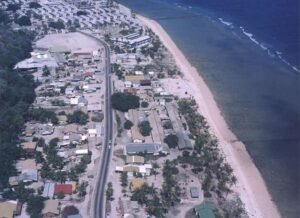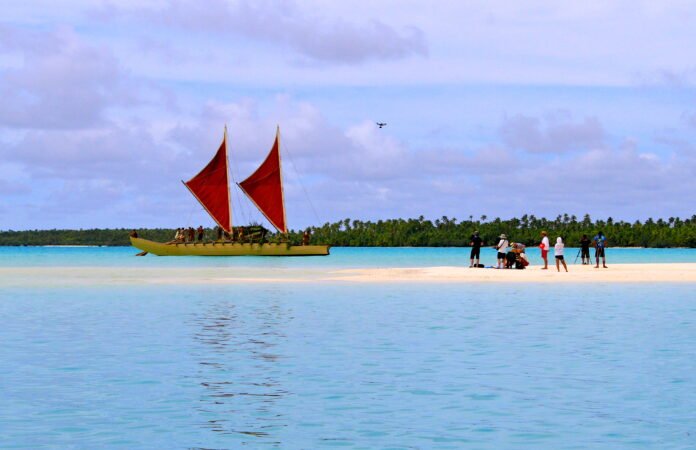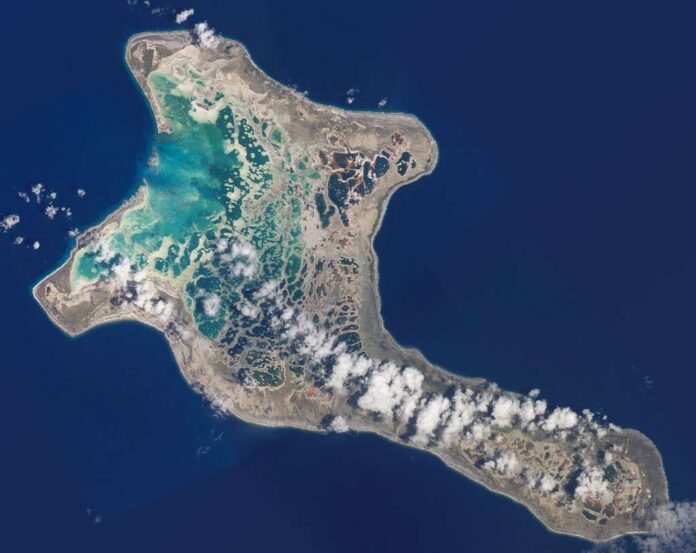Nauru’s health system is influenced by its small population and limited facilities. It provides free basic healthcare to all citizens through a universal public system. However, for advanced or specialized treatments abroad, international private health insurance is crucial. Here’s a comparison of public and private health insurance in Nauru.
Key Similarities
- Goal of Health Access and Protection
Public and private health insurance protect against huge medical costs and ensure healthcare access. Public insurance offers free services at government facilities. Private insurance provides wider access, including international treatment. - Support in Emergencies
Both systems offer emergency support. The public sector provides care at the Republic of Nauru Hospital, while private insurance often covers emergency evacuation to countries like Australia, addressing a crucial service gap. - Prevention and General Care
Both systems stress preventive services and general care like checkups and screenings, but the public system prioritizes non-communicable diseases like diabetes and obesity.
Key Differences
- Scope and Quality of Services
The public system provides basic care, such as general consultations, primary care, minor surgeries, pharmacy services, and dental care. However, it lacks specialized or advanced treatments. On the other hand, private insurance, mainly from international companies like Cigna, AXA, and Bupa, grants access to advanced diagnostics, international specialists, global hospital networks, and extensive inpatient and outpatient care. - Cost to Patients
Nauruan citizens and residents enjoy free or low-cost public healthcare. Private health insurance, costing USD $50 to $600 monthly based on provider, coverage, and risk, offers financial security for expensive international treatments. - Eligibility and Target Users
Nauruan citizens and residents enjoy universal access to public healthcare without needing to enroll or pay. Private health insurance mainly serves expatriates, travelers, NGO staff, or Nauruans going overseas. Few locals choose private plans. - Access to Overseas Treatment
In public healthcare, overseas referrals for complex cases are scarce and often rely on government or donor support. Conversely, private insurers typically cover evacuation, repatriation, and full treatment costs in countries with superior healthcare systems, like Australia and Fiji. - Claims and Administration
Public healthcare allows direct access to services without formal claims. Private insurance involves claims, reimbursements, or direct billing, based on provider and policy.
Public Health Insurance in Nauru: Overview of Coverage, Cost, and Consumer Experience
Nauru offers a single, government-funded healthcare system serving as universal health insurance for all citizens and legal residents. There are no separate public health insurance providers; the government directly delivers and funds health services. This is mainly through the Republic of Nauru Hospital and public clinics. This system covers key health insurance functions like coverage, cost, accessibility, and consumer satisfaction.
1. Public Health Insurance System in Nauru
Cost to the Patient
Nauruan citizens and permanent residents receive free or heavily subsidized healthcare through the public system. They don’t pay premiums, co-payments, or deductibles at public facilities. The government funds this universal coverage with tax revenues and international aid.
- Free Services: Primary care visits, hospitalization, emergency services, diagnostic tests, basic medications, and preventive care.
- Subsidized Overseas Care: For advanced treatment unavailable locally, referrals abroad may be subsidized.
Available Services and Coverage Features
The public system covers a wide range of essential health services, including:
- Primary Care: Routine medical consultations, chronic disease management (notably diabetes and obesity-related conditions), vaccinations, maternal and child health.
- Hospitalization: Free inpatient care at RON Hospital, the sole hospital in Nauru, offering general medicine, surgery, dentistry, pharmacy, laboratory, and radiology.
- Emergency Care: Provided locally, with medical evacuation for serious or complex cases, typically to Australia.
- Specialist Services: Very limited availability; most specialist care requires overseas referral.
- Preventive and Public Health: Emphasis on non-communicable diseases (NCDs) management, health promotion, and screenings.
Open for All or Limited
Nauru’s public health insurance is universal, covering all citizens and legal residents automatically, based on residency.
- Exclusions: Visitors and tourists usually don’t get free healthcare and must pay themselves or use travel insurance.
Core Financial Features
- Government-Funded: Funded by Nauru’s government with help from international donors like Australia and regional health initiatives.
- No Formal Insurance Pool:Unlike formal insurance, there’s no risk sharing or fee collection from beneficiaries.
- Sustainability Challenges: Nauru, despite its limited economy, prioritizes health funding to ensure universal access.
Consumer Satisfaction Score
Official consumer satisfaction metrics are not publicly available for Nauru, but qualitative reports suggest:
- Generally Positive: Citizens appreciate the free access to essential healthcare services.
- Limitations: Specialist care is scarce, advanced diagnostic tools are lacking, and overseas referrals are delayed.
- Accessibility: Most residents can easily reach hospitals and clinics, but remote areas struggle with logistics.
Summary Table: Nauru Public Health Insurance
| Feature | Details |
| Cost to Patient | Free or highly subsidized |
| Coverage | Primary care, hospitalization, emergency, preventive, basic diagnostics |
| Eligibility | Universal for citizens and residents |
| Financial Model | Government-funded; no premiums or claims |
| Specialist Care | Limited; mainly via overseas referral |
| Consumer Satisfaction | Moderate to high, with noted service and access limitations |
Top Private Health Insurance Providers in Nauru: Coverage, Cost, and Consumer Insights
Nauru doesn’t have a local private health insurance market. Instead, international insurers provide coverage mainly for expatriates, travelers, NGOs, and Nauruan citizens who need extensive coverage, especially for treatment abroad and medical evacuation. Here’s a summary of the leading private health insurance providers for those in or linked to Nauru.
1. Cigna Global
- Cost: Typically ranges from USD $100 to $500 per month, depending on age, plan options, and coverage limits.
- Coverage Features: Global health plans cover inpatient and outpatient care, emergency evacuation, maternity, dental, vision, and mental health services. These plans are customizable to fit individual needs.
- Open For: Open to expatriates, travelers, and residents worldwide, including Nauru.
- Core Financial Features: Premium-based plans with options for deductibles and co-payments to manage costs. Provides direct billing with many hospitals globally.
- Consumer Satisfaction: Rated 4.6/5, praised for flexible coverage and strong customer service.
- Official Website: https://www.cignaglobal.com
2. AXA Global Healthcare
- Cost: Monthly premiums generally fall between USD $150 and $600, depending on plan specifics.
- Coverage Features: Provides hospital stays, outpatient care, emergency evacuation, and repatriation. Includes a vast global hospital network and extra perks like preventive care and chronic condition management.
- Open For: Expats, long-term travelers, and some residents seeking international coverage.
- Core Financial Features: Premium payments with options for co-insurance and deductibles; flexible plans with add-ons.
- Consumer Satisfaction: Around 4.4/5, valued for its global reach and comprehensive benefits.
- Official Website: https://www.axaglobalhealthcare.com
3. Bupa Global
- Cost: Generally higher-tier premiums from USD $200 to $700 per month, reflecting premium service levels.
- Coverage Features: Extensive coverage includes private hospital access, specialist consultations, mental health support, medical evacuation, second opinions, and telemedicine.
- Open For: Affluent expats, corporate clients, and individuals seeking premium international health insurance.
- Core Financial Features: High financial stability, premium-based pricing, quick claims processing, and wide acceptance in international hospitals.
- Consumer Satisfaction: High ratings of 4.7/5, with strong emphasis on service quality and global network.
- Official Website: https://www.bupaglobal.com
4. World Nomads
- Cost: Affordable plans starting around USD $40 to $150 per month, aimed at short-term travelers.
- Coverage Features: Emergency medical coverage, evacuation, trip interruption, baggage loss, and coverage for adventure sports. Less focused on routine care.
- Open For: Travelers, digital nomads, and short-term visitors to Nauru and the region.
- Core Financial Features: Flexible short-term plans, simple claims process, online management.
- Consumer Satisfaction: Rated 4.3/5, appreciated for traveler-friendly policies and quick emergency support.
- Official Website: https://www.worldnomads.com
5. SafetyWing
- Cost: Budget-friendly plans starting at about USD $37 per month, with flexible payment options.
- Coverage Features: Global health insurance for remote workers and digital nomads, including emergency evacuation, outpatient care, and some coverage of pre-existing conditions.
- Open For: Long-term travelers, digital nomads, and expats.
- Core Financial Features: Subscription-based with low premiums; not a traditional insurance but offers broad international coverage.
- Consumer Satisfaction: Approximately 4.2/5, praised for affordability and flexibility, though limited for comprehensive hospital care.
Official Website:https://www.safetywing.com
READ MORE: Private and public health insurance of Cook Islands (Make informed choices)


